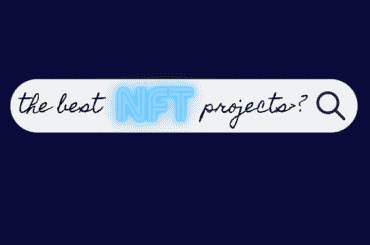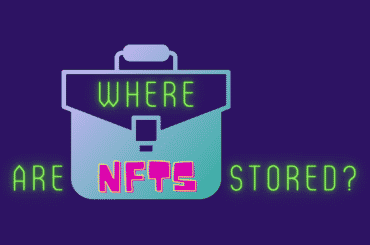Before you dive headfirst into an investment portfolio of cryptocurrency, it is important to know just what it is you are getting yourself into, which includes understanding the platforms, the coins, and the market. There are a lot of moving parts to the crypto exchange space, and if you are thinking of buying into Ethereum, you should know what precisely that is.
Table of Contents
Ethereum
Besides a very cool word, what exactly is Ethereum, and how does it work? We’ll break down the components that make up the popular platform, helping you understand just what Ethereum is and what it can do for you.
The Ethereum Blockchain
Ethereum itself is a decentralized and open-sourced blockchain technology. The tech operates thanks to a component called a smart contract on a peer-to-peer network. Smart contracts allow the site to securely execute and verify application code.
Such tech allows developers the ability to create decentralized applications or dApps. The platform’s native cryptocurrency is Ether, abbreviated ETH.
Native Cryptocurrency
The site operates using ETH. With the Ethereum blockchain, transaction records are immutable, verifiable, and securely distributed across the network. This gives participants full ownership and visibility into all of the transaction data.
Users create Ethereum accounts, from which transactions are sent and received. A sender must “sign transactions” through verification, and spend Ether, as a cost of processing transactions on the network.
Ethereum is the world’s second-largest cryptocurrency, behind only Bitcoin in popularity. This ever-growing and ever-changing digital currency is hot in the news. With record highs, and sometimes plummeting lows, its market, like most crypto exchanges, can be highly volatile.
Who Should Buy Ethereum
If you are thinking of buying Ethereum, yes known as Ether, yes known as ETH, it is more than understanding complicated naming conventions that will serve your interests. You also need to research the product and understand its behaviors.
Smart for New Investors
Most experts will tell you, if you are considering entering the crypto exchange space, to stick to the well-known investments. Products like Bitcoin and Ethereum are well-known and have a long track record.
If you are new to the game, you want a coin you can trust. With this industry, there are a vast number of “fly-by-night” operations, as well as new start-ups still trying to find their sea legs. If you are just starting out, consider something like Ethereum because it has the longevity and track record to back it up.
A Very Wild Ride
Lasting a long time in the crypto exchange scene is not the only thing that investors consider, however.
Like any investment, there is a value, however, only because people believe that there is one. In the case of crypto, there is no actual entity being backed, such as gold, dollars, or gems. This is a world of make-believe, and values come and go.
Of all markets, the cryptocurrency exchanges can be some of the most volatile. Roller coasters have far fewer ups and downs than the value of Ethereum.
From its start in 2016, Ether could be purchased for as low as 55 cents. Today, that value (at the time of publication) is around $2,400. However, that pales in comparison to its one-time high of $4,891.70. As you can see, that is a major swing, from pennies on the dollar to nearly five grand.
Not for the Faint of Heart
Because of the unpredictable ups and downs of Ethereum’s price, those seeking to get into the Ether exchange should be ready for that volatility. A good word of advice for any market, but most especially when diving into cryptocurrency exchanges, is to not invest more than you are willing to lose.
If you want to try your hand at the crypto exchange, be sure you don’t go in over your head. This is a deep pool, and there is plenty of room to drown.
Those just starting may want to consider starting small, buying even just one ETH to get their feet wet. From there, you can watch as prices skyrocket and deep dive, and see what you are comfortable with along the way.
A Long-Term Investment
Another tip for those seeking to get into Ethereum, or any cryptocurrency, is that you may want to be in it for the long game. As crypto can be so volatile, it is scary to look at the value day-to-day. Sometimes you’ll feel like a millionaire, and sometimes you’ll worry you lost your shirt.
The truth is likely somewhere in between. Though there are drastic highs and lows, there is stability over time with cryptocurrency.
It is wise to let your ETH hang in there, and see what it does over the long haul. If you are seeking to gamble, pulling crypto in and out of your accounts, it may not be the investment option for you.
What’s Right For You
Of course, with the ever-changing marketplaces, it is truly up to you individually to fit your unique needs. You have plenty of options out there, and unfortunately crypto does not come with a “one size fits all” plan to follow.
Instead, like most choices in life, the options on the table are left entirely up to you. You know your needs. You have your own goals. Only you can truly decide what the best avenues are for your own future.
Types of Exchanges
Where and how you buy Ethereum can vary based on your needs, but one thing many like to decide upfront is what type of exchange they aim to work with in the long run. If you are simply going to purchase Ether and allow it to sit still, a digital wallet (from which you can directly buy ETH, but we’ll get into that later) may be the option for you.
However, if you are entering the trading game, there is an important choice to make from the start. Which type of exchange platform is best for you?
Fiat Exchanges
A fiat exchange account allows users to trade fiat, or the currency issued and controlled by (central) banks and governments, directly for Ether. In other words, you can take a dollar in the United States and exchange it directly for a set amount of Ethereum.
In some cases, you can make an exchange directly from a bank account, such as with Robin Hood or the PayPal applications. This type of trading platform is a plus for those that like the backing of the traditional, government-backed fiat currency (i.e. the U.S. Dollar), and understand and believe in the value of it more than the fluctuating volatility of crypto.
Cryptocurrency to Cryptocurrency Exchanges
A second option when choosing to trade via an exchange are the Cryptocurrency to Cryptocurrency Exchanges (C2C). In a C2C exchange account, users can swap one type of crypto for another easily.
For investors who want to trade in multiple currencies, or want to have the option to convert other currencies easily into Ethereum, the C2C exchange may be something you want to consider.
The Choice Is Yours
Like nearly all of your financial decisions, especially in the world of crypto exchanges, you will have to make the selection that works best for your personal needs. In the case of fiat versus C2C, you also have an option to enjoy the best of both worlds.
Many investors carry accounts in both types of exchanges. One of the many pros of the cryptocurrency marketplace is the ability to do as you please, owning as many accounts on as many platforms as you so choose. It is fine, in other words, to be the owner of multiple accounts.
How To Buy Ethereum
If you’ve decided to take the plunge, and have chosen Ethereum as the coin to do so, your choices are not completely over. Now, you need to decide where or how to buy Ether.
You can make your purchase from wallets directly or from exchanges. The choice, once again, is yours to make. We’ll break down some of the options, along with their pros and cons, to help you make an informed decision.
Centralized Cryptocurrency Exchanges
Exchanges are businesses. They are online spaces that let you buy crypto. You buy said crypto using traditional currencies, for example, the U.S. Dollar.
Centralized Authority
In the case of a centralized exchange, you can consider it to be a lot like the New York Stock Exchange or perhaps even a traditional bank. In these scenarios, they (the exchange business you choose), have custody over any ETH you buy.
ETH becomes “yours” when you send it to a wallet you control. If it stays on the exchange, it is under the control of the centralized authority, charged with operating the business.
In its simplest terms, an exchange is a space in which crypto is bought, sold, and traded. If a cryptocurrency exchange is centralized, it is explaining to you that the “power” so to speak, or the authority to oversee the exchanges, rests on the business itself, and not with “the people.”
Examples of Centralized Exchanges
Some popular businesses operating centralized exchanges today include:
- Binance
- Kraken
- Coinbase (Pro)
- Bithumb
- Huobi Global
- Bitfinex
- Bitstamp
- KuCoin
While new marketplaces can come and go, these are, at the time of publication, some of the most trusted and popular spaces. Much like the coin you choose to invest in, the exchange with which you choose to do your business should be an established one, with a proven history and track record.
The Positives of a Centralized Exchange
There are many pluses for those opting for a centralized exchange. For example, with a central authority figure, many are comforted by the fact that there is a bigger power at play. In other words, some people trust financial institutions and educated professionals with their money, more than the peer-to-peer network.
A centralized exchange is a business, and as such, it can be researched and understood, as well. You can tell where an exchange is headquartered, who the managing professionals are, what licenses they have, or what practices they have in place to protect your crypto.
Other benefits many find with the centralized exchange include:
- Liquidity: ability to turn assets back into liquid cash quickly and easily
- Reliability: a solid business model and lengthy track record reassures users of security
- Friendly Interface: easier to use functions, and less tech-specific language
- No Wallet Connectivity: making users feel at ease without having to connect to a database
The Negatives of a Centralized Exchange
No world is perfect, and every model has its pluses and minuses. While those again vary from person to person, when you are deciding how to buy Ethereum, some things you may want to watch out for are negatives for centralized exchanges.
Some cons of the system include:
- Custody: Inability to control and “own” your money while on the exchange
- Hackers: Larger corporations are more often targeted by hackers aiming to steal
- Manipulation: Some large entities are blamed for trying to control or manipulate the market
- Power of the People: There is less control as centralized exchanges lack a peer-to-peer network
Decentralized Cryptocurrency Exchanges
Another option you have when considering how to buy Ethereum also includes the option of a decentralized exchange, sometimes abbreviated as a DEX. A decentralized exchange offers those that want more control over their crypto an ability to buy ETH peer-to-peer.
With a DEX, you can trade without giving control of your funds to a centralized company, a perk many traders find appealing. Since Ethereum itself operates on decentralized blockchain technology, it makes sense that many of its fans prefer this method to purchase Ethereum.
How DEX Works
When you manage crypto assets in decentralized exchanges, you are relying on the same peer-to-peer network as Ethereum does. This method of verifying and recording transactions securely and accurately is a way for users to have complete control, and still enjoy the safety of the platform.
The decentralized exchange operates on the blockchain, which itself is a sort of public ledger. This recording of all transactions is immutable. There is no central authority here. The ledger is instead distributed amongst the platform’s users.
Firm believers in decentralized applications like buying Ether without the middleman. For some, this is less chance for fees and complications. For others, it is skepticism in the powers that be. Whatever your reasoning, there are pros and cons to decentralized exchange.
Examples of Decentralized Exchanges
There are a plethora of choices out there when it comes to decentralized exchanges. Since nearly anyone able to code the programming can make one, the space is littered with them.
Seeking out your best option might once again be best left to those with the longest history or proven track record. If a decentralized blockchain has “been around the block” as it were (pun totally intended), they have likely found secure ways to support the network.
Some examples of these, which at the time of publication, which have the greatest trading volume and market share to date, include:
- Uniswap (V.3)
- dYdX
- PancakeSwap (V.2)
- Curve Finance
- SpookySwap
- Serem DEX
- TraderJoe
- ApolloX DEX
Like any part of your cryptocurrency exchange experience, you should carefully research the platforms on which you aim to trade, buy or sell Ethereum.
The Positives of a Decentralized Exchange
As with any coin, there are always two sides. Here are some of the positives associated with decentralized exchanges:
- Less hacking: Peer-to-peer networks are less targeted than centralized apps
- No Third Party: there is no middle man or central authority; transactions are direct
- Less Manipulation: without a central power, manipulation is more difficult
- Anonymity: DEX sites do not require true identification of users
- Custody: you remain in control and ownership of your crypto
With millions of users having purchased ETH with DEX sites, it is no wonder that there is popularity amongst investors. Depending on your preferences, these exchanges can have a lot to offer.
The Negatives of a Decentralized Exchange
If you decide to open your trading account with a decentralized exchange, you should be aware that no system is perfect. There is always a downside, and for every positive the DEX offers, there is also something to watch out for, as well.
Some of the cons associated with a DEX include:
- Complexity: From jargon to coding, those unfamiliar with programming may struggle here
- Lack of Fiat Currency: Use of DEX means that fiat exchange cannot be made possible
- Slow Liquidity: with fewer users, liquidity especially in emergencies can be limited
- Reliance on Peers: with no central authority, security is left to the peer-to-peer blockchain
Doing your research and weighing such pros and cons is the key to finding the right products and tools for your crypto venture.
Direct From a Digital Wallet
A third option when shopping for your Ethereum investment purchase options is a digital wallet. You may be thinking, isn’t this where I store my private key? How can I buy from an application designed to hold a private key?
Yes, the crypto market is a confusing and wonderful place, and this is yet another space where wording seems confusing until you understand the functions and abilities of the products out there. In the case of a digital wallet, yes, users store personal keys, as well as digital assets.
What Is A Digital Wallet?
Since the actual purpose of a digital wallet can become a bit muddled, let’s first explain what precisely a digital wallet is and does. First up, there are many names for this device, such as crypto wallet, digital wallet, or online wallet app.
The Purpose of a Digital Wallet
In terms of interacting with Ethereum, a digital wallet is an application that lets you interact with your Ethereum account. Much like an internet banking app (of course here without the bank), your wallet lets you read your balance, send transactions, and connect to applications. In short, you need a wallet to send funds and manage your ETH.
A wallet, when interacting with the Ethereum network, is only a tool for managing your Ethereum account. Like most platforms, Ethereum allows users to swap wallet providers at any time. Many wallets also let you manage several different accounts at once.
Wallets do not have custody of your funds, you do. Wallets are, however, a tool for managing what is really yours.
Types of Digital Wallets
A digital wallet (by any name you find it to fall under) is a device or a program that allows a user to transfer, buy, or store cryptocurrency. There are three basic types of digital wallets:
- Hardware wallets: a removeable device typically connected by USB
- Software wallets: mobile or desktop/laptop programs downloaded to your device
- Web-based wallets: Software stored online with remote access from any device
- Paper wallets: recording a private key with a physical paper and pen
and each has unique features, as well as pros and cons for each. Depending on your needs and unique circumstances, choosing a digital wallet is another hurdle you will have to overcome, deciding for yourself which option or options are best.
The major differences in the types have to do with how a private key is secured. You will also find terms in your search, such as hot or cold storage, relating to the accessibility each wallet has to the Internet (and in turn how exposed your keys can be).
Yet Another Choice To Make
Whether you opt to work via an exchange or trading platform, or straight from a digital wallet, chances are you are going to need to own one. Digital wallets store not only your private keys but also your outward-facing codes required to have others make payments to you.
Additionally, a digital wallet stores your digital assets such as purchased NFTs, cryptocurrency, tokens, coins, or badges. In order to interact with exchanges, you will need a wallet.
You should base your choice on a number of factors, but largely remember to focus on reliability and longevity, security, your own abilities to store information or objects, the frequency of your travel, and costs (not just upfront, such as a hardware wallet which can range from $100 to $200, but also watch for fees on transactions, account ownership, and gas fees).
Examples of Digital Wallets
Not all digital wallets are created equal. And, the choices don’t stop at which style of wallet you decide to purchase. Each digital wallet also varies in the types of platforms they do and do not work with, as well as the types of cryptocurrency products they are compatible with on the marketplace.
If your main focus is to purchase with the Ethereum network, you will need wallets that work with Ether. Some of those include:
Ethereum-Compatible Hardware Digital Wallets
- Ledger Nano S
- Ledger Nano X
- Trezor One
Ethereum-Compatible Software Digital Wallets
- Coinbase
- ZenGo
- Kraken
- Gemini
- CoinSmart
- Exodus
Ethereum-Compatible Paper Wallets
- A paper and pen with private keys
- A QR code to enable deposits
Positives of Digital Wallets (For Buying Ether)
There are many reasons that people avoid the exchanges and jump on the digital wallet train instead. Some of the positives for investors include:
- Skip Trading: buyers can simply buy and hold ETH without a trading exchange
- Control: keeping ETH in your wallet means you never allow another business to have custody
- Security: well-established, long-lasting applications can provide solid security
Negatives of Digital Wallets (For Buying Ether)
You’ve likely already guessed where this is headed, but for every silver lining, there is a touch of grey, at least some wise man once sang. In the case of digital wallets, this is also true.
Some of the cons of using a digital wallet to buy Ether include:
- Lack of Assistance: wallets require users to be independent which some may struggle with
- Hacking Risk: owning and protecting your crypto is sometimes left only to you
- Personal Information: Some wallets require you to connect personal information, such as debit card or credit card numbers
- Compatibility: not all wallets work with all crypto nor all exchanges which can limit you
Online Brokers
If you want to put the control and options into someone else’s hands, there is an option to do so. Just like jockeying the stock market is often left to the professionals (though even there you can find DIY options, too), so too can the cryptocurrency exchange game.
The Positives of Online Brokers
If you so choose, there are crypto brokerage services available. Online services offer an easy way to interact with crypto. You, in the simplest of terms, determine an amount you want to invest and let them take it from there.
These services often also come with the lowest fees, making it an affordable way to do business with crypto. Some also find the crazy vocabulary, wild technology, and the chaotic market turns just too much to take on on their own.
Allowing a professional to handle it for you can make the experience far less stressful for you. It takes the concept off of your plate and places the “to-do list” entirely up to the brokerage service.
The Negatives of Online Brokers
The drawback of a brokerage is that there can be a laundry list fine print involved. Remember, brokerage services and their companies have a team of lawyers on their side, making sure both that they are operating in a legal manner, but also that their interests are protected.
A business also would not exist if it could not make money at it. While they are out there trying to turn your investment portfolio into profit, they are of course going to take a cut of the windfall, too.
Another drawback to a brokerage firm is the liquidity of your funds. Even longer than it can be with DEX, a broker will have plenty of fine print when it comes to how he lets you move cryptocurrency in and out of the account. Some brokers do not allow this at all.
Lastly, some find the entire concept of and process of a brokerage to be rather against the “crypto vibe” altogether. A major pillar of the crypto space as a whole is the ability to operate in freedom, to move about a market without restriction, and to get away from the bank and government-controlled currencies.
By opting to go with a broker, many feel that you are, in a way, “selling out” on this concept. Using a broker to some means that you are once again relying on the old-fashioned banking institutions that crypto strives to steer clear of all around.
Unconventional Methods
As the, albeit bizarre and confusing phrase goes, there is more than one way to skin a cat. (Who skins cats, anyhow?) Strange phrases aside, the sentiment rings true. There are far more ways to purchase Ethereum than the traditional avenues mentioned above.
Each investor needs to find a path of his or her own choosing, but there are some interesting ways to get the job done, that is for sure. For example, did you know you can purchase ETH at an ATM?
From in-person options the network is working on now, to using anything from cash, debit card, credit card, bank transfer, or even apps like PayPal and Robin Hood, there are constantly new and unique ways (beyond the payment method) you can go about buying ETH.
And once you fund your account on Ethereum, your world is just getting started.
Always Options
At the end of the day, buying ETH can be done in a number of ways. Whether you deposit money, like cold hard cash, via an ATM or register your credit card to application on your phone, you have a wide variety of choices to make when it comes right down to it.
Due Diligence
Doing your research and making informed, educated choices is always wise. Each user has his or her own unique set of circumstances and goals. Focus on what it is you want to get out of the process, and how best you can go about getting to your goal.
Once you fund your account, your interactions on Ethereum can take place. Perhaps you aim to just buy Ether to hang onto it and see where the value goes. Maybe your goal in buying ETH is to create new dApps on your own.
Whatever your goals and purpose, there are applications on the marketplace that can help you get there.
To Answer Your Question
At the end of the day, users want to know how to buy Ethereum. Like so many other questions out there, the answers are nearly endless. “How to buy Ethereum” is not a question with a simple solution.
Instead, the answer to that is as unique as the user aiming to buy Ethereum. A crypto investment can have many means to an end to get to your goals, be it financial, artistic, developmental, or just for fun. Your bank account is not the only way the world of finances exists.
There is a vast space to explore out there when buying Ethereum. Trust sources with well-informed and research-based resources. FLOLiO aims to provide just those avenues of exploration, so you can sit back and enjoy the cryptocurrency ride.





